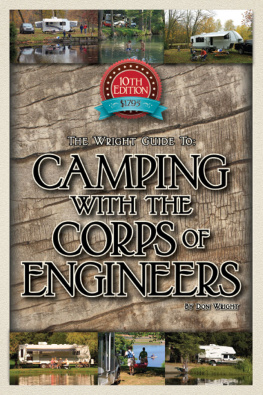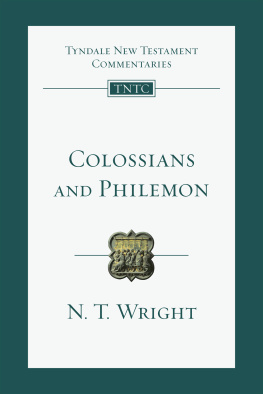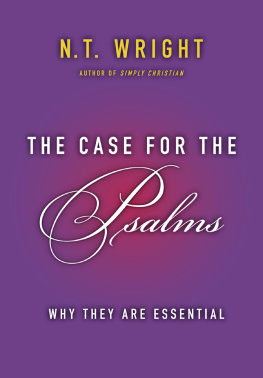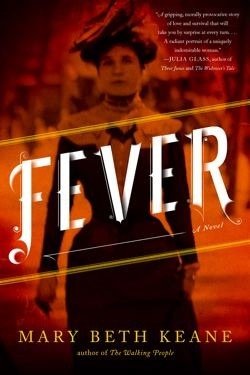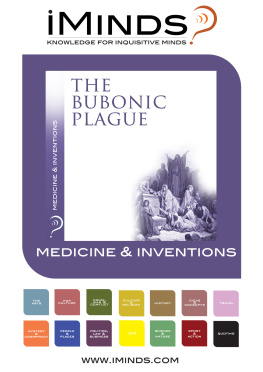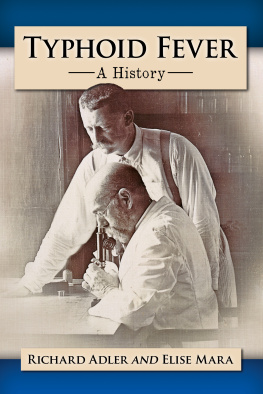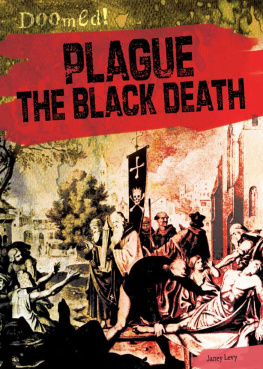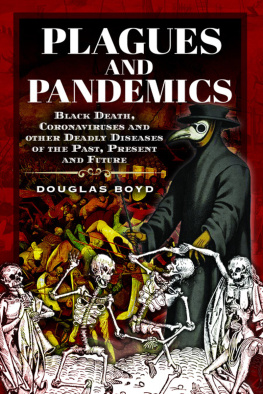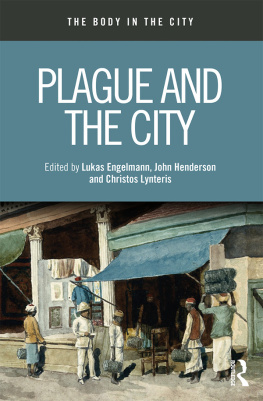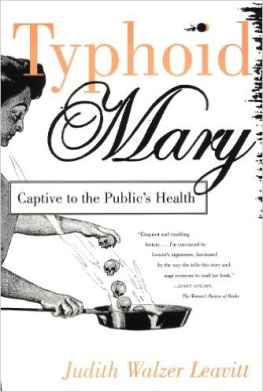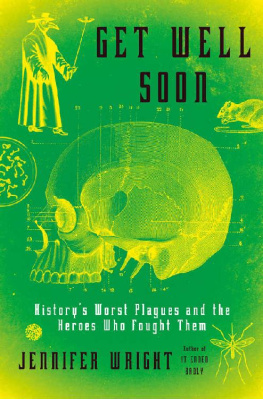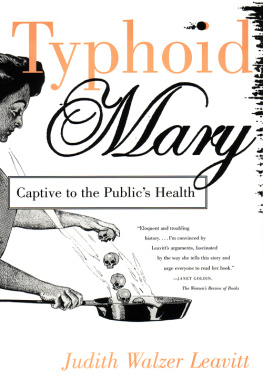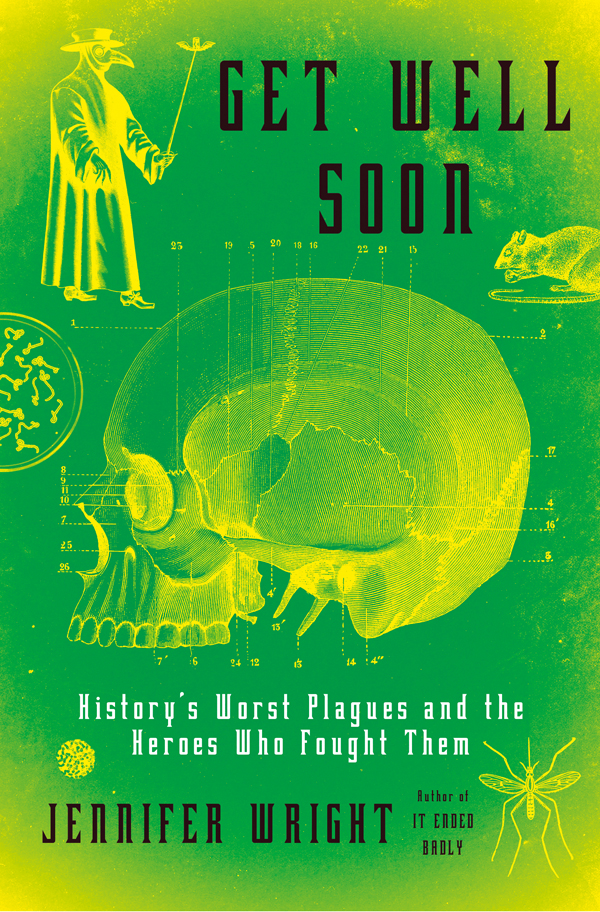Contents
Guide

The author and publisher have provided this e-book to you for your personal use only. You may not make this e-book publicly available in any way. Copyright infringement is against the law. If you believe the copy of this e-book you are reading infringes on the authors copyright, please notify the publisher at: us.macmillanusa.com/piracy.
For Mom and Dad.
Would it kill you to go to the doctor now and then?
Whats natural is the microbe. All the resthealth, integrity, purity (if you like)is a product of the human will, of a vigilance that must never falter.
A LBERT C AMUS, The Plague
Ive got chills.
Theyre multiplying.
And Im losing control.
J OHN F ARRAR , Youre the One That I Want, Grease
When I tell people that I am writing a book on plagues, well-meaning acquaintances suggest I add a modern twist. Specifically: You know, like how were all on our cell phones all the time. Or selfies. A chapter on selfies.
Then I reply, No, my interest lies more with the kind of plague where you break out in sores all over your body and countless people you know and love die, rapidly, within a few months of each other, in the prime of their lives. And there is nothing you can do, and everyone is dead, and everything is death, and all of earth seems to be a vast wasteland of corpses, and, wait, here, allow me to show you some absolutely horrific pictures.
And then they say, Excuse me, Im just going to get another drink.
I am so happy you picked up this book because often, when Im out chatting with people, no one really likes to hear about diseases of the past. I suspect that disinclination is largely due to plagues seeming both very grim and very remote. Its generally better just to say that I like selfies. I think theyre fun. I like seeing pictures of my friends smiling faces. I like how alive they all are.
It does appear that we are living in a world where the word plague has shockingly little meaning for many. To the extent that they think about plagues at all, many associate them with muddy huts, textbooks they had to read in sixth grade, and, if they are film buffs, a death figure who has a truly bewildering interest in chess. People in core countries seem to expect to die at age ninety in a nursing home. They do so with good reason: if conditions continue uninterrupted, 50 percent of the children born in the year 2000 will live to be a hundred years old.
If conditions continue uninterrupted.
We have been living in an age of improbable luck. We have experienced nearly thirty years without a diseasethat we do not know how to combatkilling upward of thousands of otherwise healthy young people in those core countries. I cant say whether this good fortune will run outI hope it wontbut it always has in the past. We just like to forget this disagreeable fact. Forgetting is soothing and probably in our nature. But disregarding, and being ignorant of, plagues of the past makes us more, rather than less, vulnerable to inevitable ones in the future.
Because when plagues erupt, some people behave amazingly well. They minimize the level of death and destruction around them. They are kind. They are courageous. They showcase the best of our nature.
Other people behave like superstitious lunatics and add to the death toll.
I wish I had the scientific knowledge to talk about how to make vaccines or cures that might eradicate illness, but I dont. This book isnt just for future Nobel Prize winners, as much as I am impressed by and rooting for them. Because whether plagues are managed quickly doesnt just depend on hardworking doctors and scientists. It depends on people who like to sleep in on weekends and watch movies and eat French fries and do the fantastic common things in life, which is to say, it depends on all of us. Whether a civilization fares well during a crisis has a great deal to do with how the ordinary, nonscientist citizen responds. A lot of the measures taken against the plagues discussed in this book will seem stunningly obvious. You should not, for instance, decide diseased people are sinners and burn them at a literal or metaphorical stake, because it is both morally monstrous and entirely ineffective. Everyone would probably theoretically agree with this statement. But then a new plague crops up, and we make precisely the same mistakes we should have learned from three hundred years ago.
I recently read in a history book that you ought not view the past through a modern-day lens. It supposed that instead you should consider different eras as entirely separate, like, I imagine, sausage links. I thought the writer seemed to show a fundamental lack of understanding of how time works. The past does not exist under a bell jar. Moments, ideas, and tragedies of the past bleed into the present. Alas, some of the ideas that make it into the present consciousness are not the best. I found, for instance, that some people still feel justified hating Jews because they think they started the bubonic plague by dumping diseased material into wells. (This is, as well examine, impossible.) Worrying whether people preparing your food are washing their hands thoroughly has a lot to do with the contagious disease-carrying cook Mary Mallon, aka Typhoid Mary. If moments from the past seep so seamlessly into the present, maybe moments from the present can help us relate to the past. After all, the past was no less ridiculous than the present. Both eras were made up of humans.
One of my great wishes is that people of the present will see those of the past as friendly (or irritating) acquaintances they can look to for advice. Its easy to forget that people from the past werent the two-dimensional black-and-white photos or line drawings you might encounter in some dry textbooks. They werent just gray-faced guys in top hats. They were living, breathing, joking, burping people, who could be happy or sad, funny or boring, cool or the lamest people you ever met in your life. They had no idea they were living in the past. They all thought they were living in the present. Accordingly, like any person, past or present, could be, some of them were smart and kind and geniuses about medicine and also completely dull on a personal level. (Im trying to come to terms with loving John Snows deductive brilliance and being absolutely certain I would never want to spend more than ten minutes talking to him.) Others were charismatic and charming and total sociopathic maniacs. (That description gives Walter Jackson Freeman II too much credit for charm, but people liked him. He was gross, and he wore a weird penis ring on his neck. People should not have liked him for numerous reasons.)
You should regard everyone in this book as human, not inanimate historical figures . We can have personal opinions about them; were not all that different from them. And despite what some breathtakingly stupid intellectuals would have you believe, the people and interests of the past werent necessarily smart and serious any more than the people and interests of the present are dumb and frivolous. Knowing about pop culture doesnt make you dumb; it makes you a person who is interested in the world you live in. Besides, it is impossible to believe that everyone in the past was a serious figure meriting great respect once you learn that one guy thought tubercular patients should take up new careers as alligator hunters.
I am always hopeful that the more we demystify the pastand the more we laugh about it and toss around information about it with the same enthusiasm we have for discussing our favorite TV showsthe better off we will be. Because if or when the next plague comes, I hate the idea that the only people who are familiar with Paracelsus (loved mercury, hated women) are going to be elderly academics in tweed coats who discuss him with pseudo-British accents. When the next outbreak comesand I lack the optimism to believe it wontso many of our challenges will remain the same. We will be so much better off if the absolute maximum number of present-day and future people handle the disease with the aplomb of some of the best figures in this book. And lets be honest, that guy in the tweed coat with the on-again-off-again accent is going to die first.




